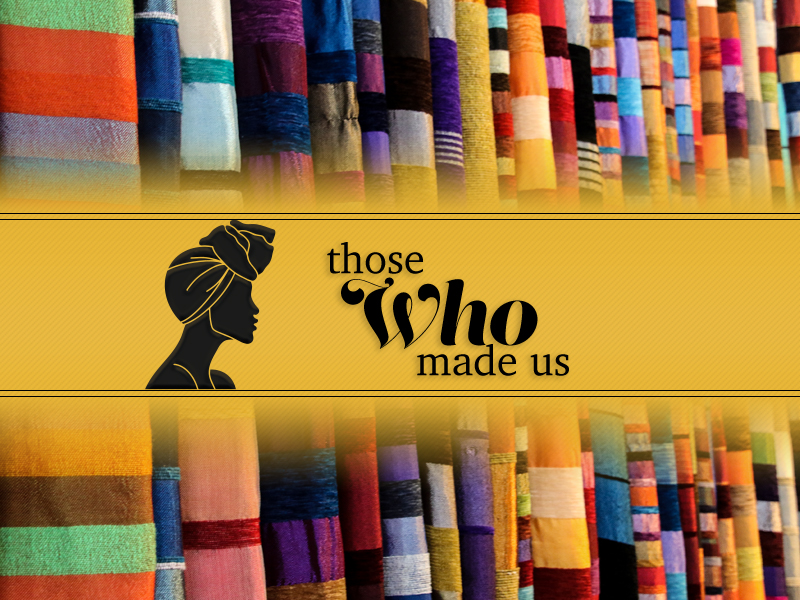Women’s History Month is all about remembering and giving thanks to amazing women who, without them, we wouldn’t be where we are today. However, there are many influential Black women who are not as well known. Join us in honoring these unsung heroes!
Dorothy Height
Dorothy Height was considered an unsung heroine in the civil rights era. She began working for the National Council of Negro Women (NCNW), where she focused on ending the lynching of African Americans and restructuring the criminal justice system. She became president of the NCNW, in 1957. Under her leadership, the NCNW supported voter registration in the South, as well as financially aided civil rights activists throughout the country. She remained president of the NCNW for 40 years. Height was often sought out to give advice on political issues to Eleanor Roosevelt, Dwight D. Eisenhower, and Lyndon B. Johnson.
Along with other civil rights activists, Height organized the march on Washington for Jobs and Freedom, a march focused on the civil and economic rights of African Americans. Even though she played an important role in the march, Height was not invited to speak. During this time, there was gender discrimination in the Civil Rights Movement, yet Height continued to push through. She advocated for improving the lives of Black women and pushed for women’s rights. Height helped found the National Women’s Political Caucus. For all her efforts during the Civil Rights Movement, Height received the Citizens Medal Award and was honored with the Congressional Gold Medal. She was also inducted into the Democracy Hall of Fame International. To learn more about this amazing civil rights activist, please visit her website: https://dorothyireneheight.org/about/dorothyiheight/.
Amelia Boynton Robinson
Amelia Boynton Robinson was a civil rights pioneer who fought for voting rights for African Americans. Her early activism included holding Black voter registration drives in Selma, Alabama, from the 1930s through the 1950s. In 1964, Boynton became the first African American woman and the first female Democratic candidate to run for a seat in Congress from Alabama.
Boynton worked along with civil rights activist Martin Luther King Jr. to organize the 1965 Selma March, where people marched from Selma to Montgomery in an effort to register Black voters. For helping lead the 1965 Selma March, also known as Bloody Sunday, Robinson was brutally beaten. The photo of her lying bloody and beaten drew national attention and prompted President Lyndon B. Johnson to sign the Voting Rights Act on August 6, 1965. In 1990, Boynton Robinson was awarded the Martin Luther King Jr. Medal of Freedom. She was honored as a special guest at President Barack Obama’s State of the Union address in January 2015. March of that year, Boynton Robinson alongside President Obama and with fellow civil rights activist John Lewis marched across the Edmund Pettus Bridge to mark the 50th anniversary of the Selma to Montgomery march. To learn more about this incredible women who fought for our voting rights, please visit her website: www.ameliaboyntonrobinson.org/about.html.
Jane Bolin
Jane Bolin was a trailblazer for Black women who practice law. She was the first Black woman to graduate from Yale Law School and became the nation’s first Black woman judge in 1939. During her tenure, Bolin made changes: first, the assignment of probation officers to cases without regard for race or religion; and second, she made a requirement that publicly funded private child care agencies accept children without regard to ethnic background. Bolin worked alongside First Lady Eleanor Roosevelt to support a program aimed to eradicate juvenile crime among boys. After 40 years of service, she retired in 1979 and went to serve on the New York State University Board of Regents, where she reviewed disciplinary cases. To learn more about Bolin and her accomplishments, please visit https://www.biography.com/political-figure/jane-bolin.
Daisy Bates
Daisy Bates was a civil rights activist. She had to deal with racial injustice early on in life when her mother was killed by 3 white men. This event forced her to confront racism and pushed her to dedicate her life to ending racial injustice. Bates helped start The Arkansas Weekly, one of the first Black newspapers that was dedicated to the Civil Rights Movement. She worked as an editor and contributed articles. She became President of the Arkansas chapter of the NAACP. Bates’ work with the NAACP transformed the Civil Rights Movement.
In 1954, the Supreme Court ruled segregated schools unconstitutional. After the ruling, Bates began gathering African American students to enroll at all-white schools. Many white schools refused to let Black students attend, but those who did follow the mandate were publicized in her newspaper. Regardless of the resistance she met, Bates continued to push forward. She organized the Little Rock Nine, where she selected nine students to integrate Central High School in Little Rock. After the success of the Little Rock Nine, she continued to work on improving the status of African Americans in the south. To learn more about this amazing women who made integration possible, please visit: Daisy Bates.
Constance Baker Motley
Constance Baker Motley was a lawyer, a civil rights activist, and the first Black woman to become a federal judge and serve in the New York State Senate. She became a key legal strategist in the Civil Rights Movement, by helping to desegregate Southern schools, busses, lunch counters, and successfully won nine out of ten cases she argued before the U.S. Supreme Court. In 1965, she became the Manhattan Borough President- the first woman and first African American in that position. With her continued success, she hoped to be an inspiration to Black women everywhere. She proved in everything that she’s done that “Blacks and women are as capable as anyone.” -Constance Baker Motley. To learn more about this civil rights activist, please visit: https://www.blackpast.org/african-american-history/motley-constance-baker-1921-2005/.
Fannie Lou Hamer
Fannie Lou Hamer was an African American civil rights activist, and American voting and women’s rights activist. Hamer became involved with the Student Non-Violent Coordinating Committee (SNCC) and on August 31, 1962, she led 17 volunteers to register to vote at the Indianola Mississippi Courthouse. They were denied the right to vote due to an unfair literacy test. In June 1963, after registering to vote, Hamer and several other Black women were arrested for sitting in a “whites-only” bus station restaurant in Charleston, South Carolina.
In 1964, she co-founded the Mississippi Freedom Democratic Party (MFDP), which challenged the local Democratic Party’s efforts to block Black participation. Hamer and other MFDP members went to the Democratic National Convention that year, arguing to be recognized as the official delegation. She called for mandatory integrated state delegations. By 1968, after her continuous efforts for racial parity in delegations, Hamer became a member of Mississippi’s first integrated delegation. In 1964, she helped organize Freedom Summer, which brought hundreds of college students to help with African American voter registration in the South. In 1971, Hamer helped found the National Women’s Political Caucus. To learn more, please visit: https://www.biography.com/activist/fannie-lou-hamer.


















